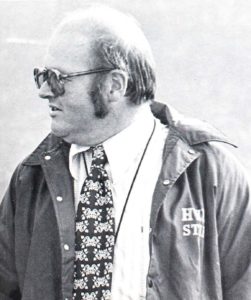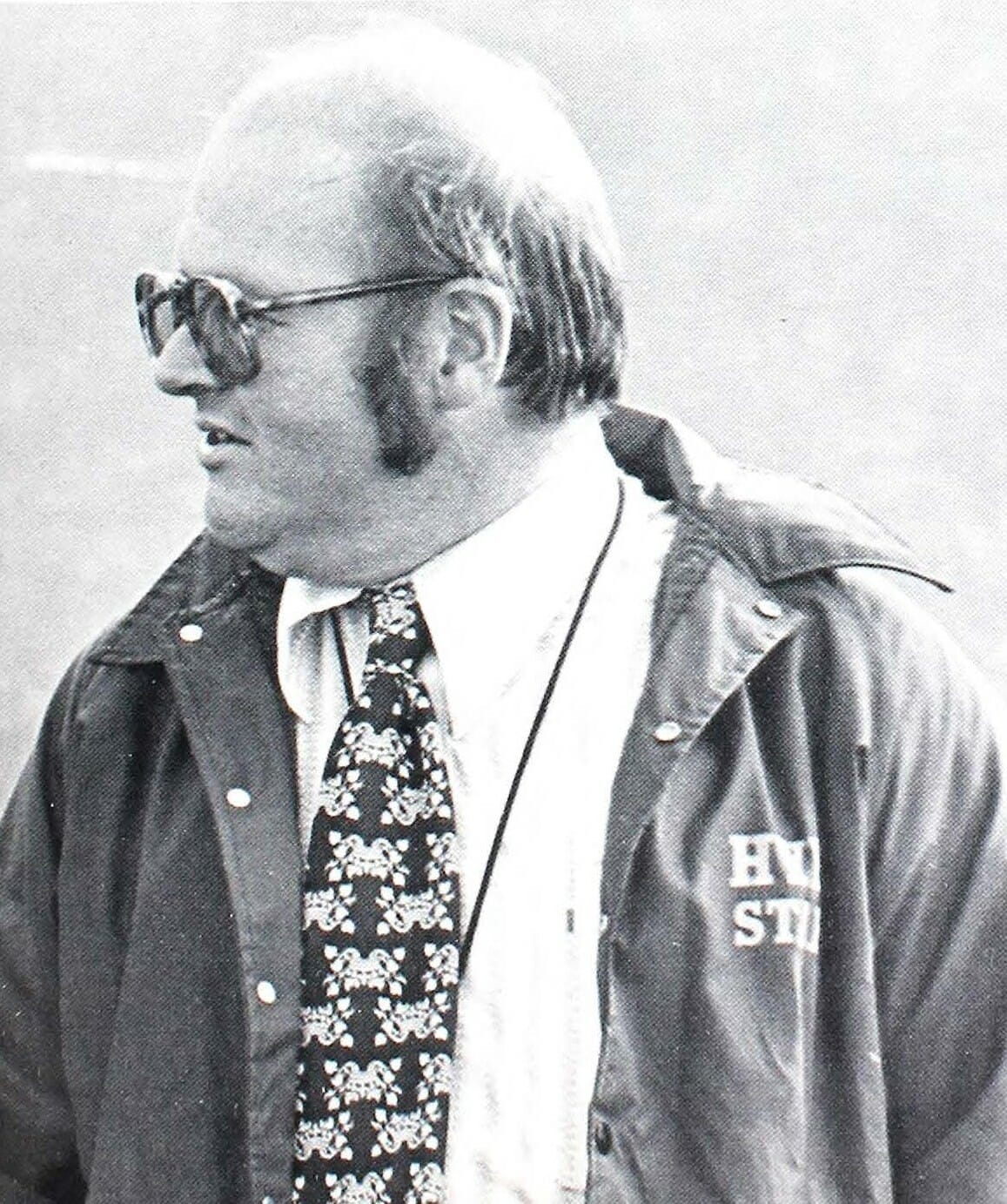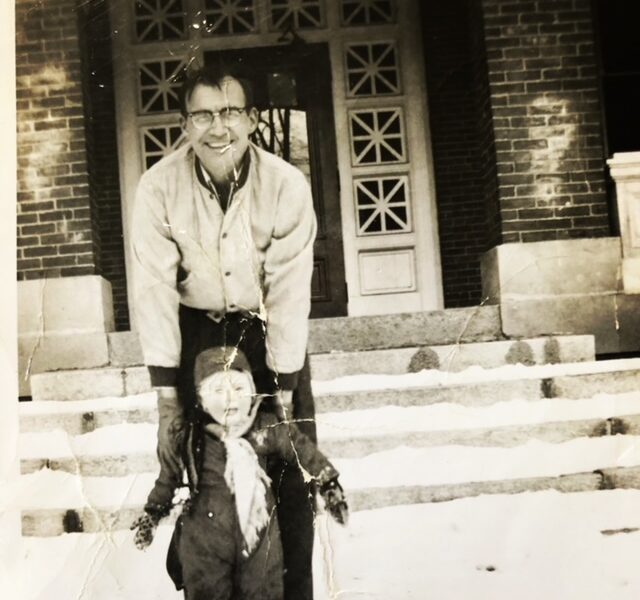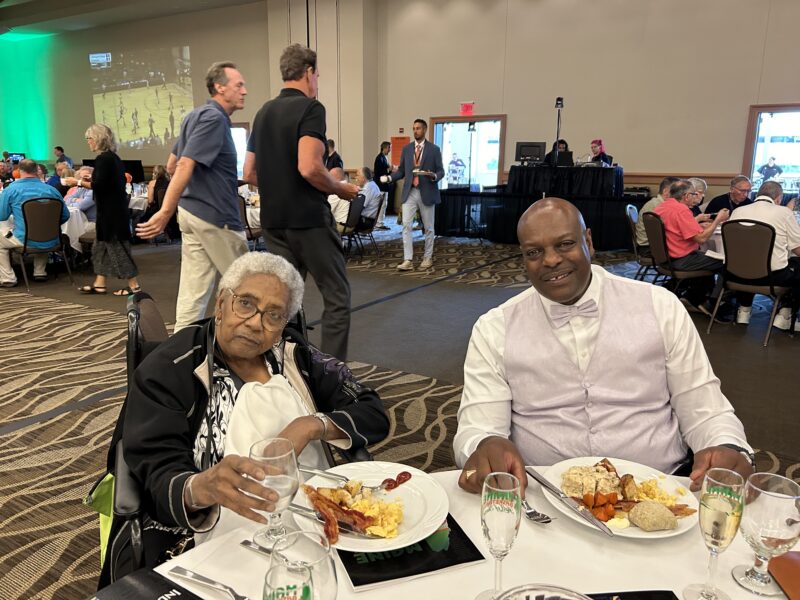
John Page served as a teacher, coach, and administrator at Hyde during three separate tours of duty between 1978 and 2012. He was a memorable guy! In fact, since Laura and I learned of his passing yesterday afternoon, we have been swapping “Johnny P” (I always called him that.) stories.
We learned of John’s passing from his children. While many older alums may remember James and Marcia as very young faculty children, they have grown up to be awesome adults. Know that John died a proud father. They said that the cause of death had yet to be determined but that John died peacefully at home. Remembrance plans are TBD.
I first met John when I was a neophyte Hyde teacher. At the time, I knew three things about him:
- He had just completed a stint as a Maine public school teacher and coach.
- He had played hockey (goalie) at Belmont Hill School and Harvard.
- He was a very personable guy.
Little did I know that John would turn out to be one of those people in my life who have helped show me the way simply by doing that which I was not doing. Huh? In other words, happenstance would find me observing him in a teaching and coaching context. Then I would find myself moved by something that was happening in that context. Then I would realize, I am not doing that… Maybe I should try that. Two examples of John’s teaching come to mind.
The first occurred in that infamous Hyde wheelhouse known as the Dean’s Office. John had challenged a classic Angry Young Man with “an attitude that could choke a horse” (old Hyde saying) for some attitudinal and/or ethical violation. The kid was totally “going off” in disrespectful mode on the absurdity of all things Hyde: the rules, the parents who had sent him here against his will, the kids who were “narcs,” and all that good stuff. Although mesmerized by the kid’s harangue, I broke away long enough to read John’s reaction. John never deviated from staring into the kid’s eyes with an expression of warm understanding. He never took the bait of the kid’s attitude. Before long, the “conversation” turned into a respectful… well… conversation. I remember thinking: “That is not what I do. (I tended to argue.) Maybe I need to do that.” After that teaching moment, I consciously tried to follow John’s example. Today I call it “venting the spleen” and find myself passing John’s approach along to young Hyde faculty.
The second example occurred when John coached JV women’s basketball. Initially, I confess that I was taken aback simply by John’s willingness to actually do it in the first place. Setting aside the fact that I was largely ego-driven at that point in my career and wanted to coach only varsity teams, this particular team was – no offense to its members – very, very weak. Not only had none of the players ever played organized basketball, they did not even know the most basic rules. (Let me put it this way: When the referee would blow the whistle in response to a travel or double dribble, the good news is that our girls would stop and politely hand the ball over. The bad news: They had no idea why the ref had blown the whistle in the first place.) I remember thinking two thoughts: 1) I would have no idea where to begin with this assemblage of “players.” 2) I feel sorry for John. Thankfully, I did observe his approach.
John began by focusing on one task and one task alone: “OK, ladies, we’re going to play a game called ‘Stay between Your Girl and the Basket.’ Cannot do a lay-up? I do not care. Do not understand travelling? I do not care. I only care about one thing: When the other team has the ball, you must stay between your girl and the basket. That is the only thing I will yell at you for.”
And that is all they did for the next week or two.
I remember that they were getting demolished in an early season game and the only thing John did during time-outs was critique how well they were staying between their girls and the basket. It was as though he had invented a new sport, one that would be played in the midst of another sport, both being played simultaneously.
Then when John was satisfied that they had mastered this primary task, he said, “OK, let’s try a lay-up.” Now they had two things to work on. Then they worked on shooting. Then John introduced an offensive set. By season’s end, no one would have mistaken them for a good basketball team. However, they had become a legitimate basketball team, one where each player felt a genuine sense of accomplishment. Somehow, I got the point. John taught me that it is better to light a candle than to curse the darkness. He also taught me that you do not force your players into a system, you create a system that fits your players.
Once I became a head of school, I came to appreciate John’s interpersonal skills, some presumably developed during his pre-education career in sales. Specifically, when we were playing basketball in the Maine public school league, John’s ability to secure a full men’s and women’s schedule was masterful. Some Maine public schools felt strongly that “public school championships should be for public school kids.” As a result, some schools refused to schedule us for countable games. We even sensed conspiratorial forces at work. My memory of John during that time is a guy with a telephone receiver wedged between his neck and shoulder. Somehow, he wheeled and dealed his way to a schedule that enabled us to qualify for state tournament competition. I’m not sure that anyone else could have pulled that off.
At Hyde, we like to say, “Principles over Personalities.” However, we do not say, “Principles instead of personalities.” That is because principles are powerless to stand up for themselves. They must be embodied in personalities, personalities like John Page.
Thanks John and RIP.
Onward, Malcolm Gauld



